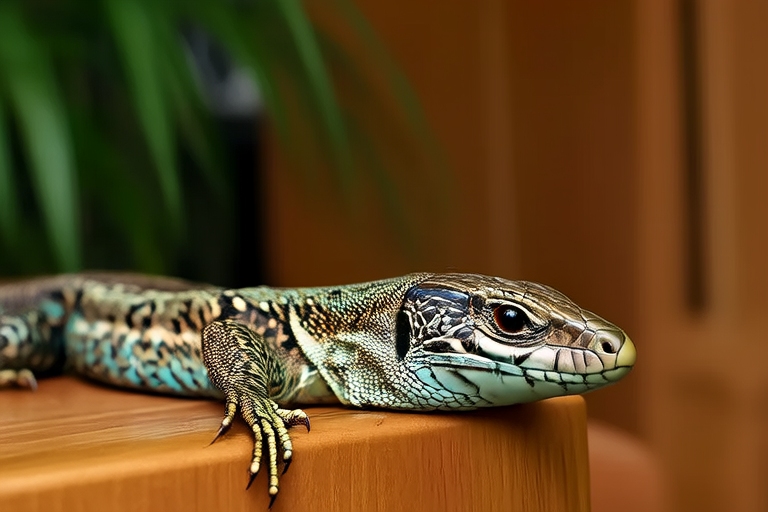The Splendid Japalure: Perfect Companion for Modern Families
For those seeking a unique and affectionate companion that can seamlessly integrate into the bustling life of modern families, look no further than the splendid Japalure. This charming hybrid bird, known for its vibrant plumage and engaging personality, has captured the hearts of many pet enthusiasts around the world. In this article, we will explore the origins, temperament, care requirements, and why the Japalure makes an ideal pet for contemporary households.
Origins of the Japalure
The Japalure is a hybrid bird resulting from the crossbreeding of two popular species: the Java Sparrow (Lonchura oryzivora) and the Zebra Finch (Taeniopygia guttata). These birds were first bred in captivity by aviculturists who sought to combine the best traits of both parent species. The Java Sparrow, native to Southeast Asia, is known for its striking black head and white cheeks, while the Zebra Finch brings vibrant orange cheek patches and a more robust constitution. The result is a bird that not only looks stunning but also exhibits a delightful mix of both parents’ behaviors.
“Breeding Japalures requires careful selection of healthy specimens from both parent species,” says Dr. Emily Carter, a renowned avian veterinarian. “This ensures that the offspring inherit the desirable traits without inheriting any genetic disorders.”
Temperament and Interaction with Children and Other Pets
Japalures are social birds that thrive on human interaction. They are generally gentle and affectionate, making them excellent companions for families with young children. However, like all birds, they require patience and understanding from their handlers. Children should always be supervised when interacting with these birds to prevent accidents and ensure proper handling techniques.
When introduced to other pets, Japalures can coexist peacefully as long as they are given sufficient space and respect. They are particularly compatible with small mammals such as hamsters and guinea pigs. However, caution should be exercised around larger pets that might view the Japalure as prey.
Care Requirements
Maintaining a healthy Japalure involves providing them with a balanced diet, a clean living environment, and regular veterinary check-ups. Their diet should consist of a variety of seeds, fruits, and vegetables. Fresh water should be available at all times. A spacious cage equipped with perches, toys, and nesting material provides the necessary stimulation and comfort for these active birds.
Regular cleaning of the cage is essential to prevent the buildup of bacteria and odors. A weekly deep clean is recommended, involving the removal of all perches, toys, and bedding for thorough disinfection.
Training Tips
Training a Japalure can be a rewarding experience, fostering a strong bond between the bird and its owner. Basic commands such as ‘step up’ and ‘come here’ can be taught using positive reinforcement techniques. Treats and verbal praise work well as incentives. Patience is key; training sessions should be kept short and enjoyable for both the bird and the trainer.
One of my fondest memories involves teaching my Japalure to mimic simple phrases. It was fascinating to watch as it gradually learned to repeat words like ‘hello’ and ‘good morning’. The joy on its face when it successfully mimicked these sounds was priceless.
Health Considerations
Like any pet, Japalures are susceptible to certain health issues. Regular visits to an avian veterinarian are crucial for early detection and treatment of potential problems. Common ailments include respiratory infections, feather plucking, and obesity. Providing a balanced diet, ample exercise, and mental stimulation can help prevent many of these issues.
It’s important to monitor your Japalure’s behavior and physical condition daily. Any changes in appetite, activity level, or appearance could indicate an underlying health issue and warrant immediate attention.
Challenges for Potential Owners
While Japalures make wonderful pets, there are some challenges that potential owners should be aware of. Their high energy levels mean they require plenty of space to move around and play. Without adequate stimulation, they may become bored or frustrated, leading to behavioral issues.
Additionally, Japalures can be quite vocal, especially during the breeding season. While their calls are part of what makes them so charming, they can be overwhelming for those living in close proximity to neighbors. Investing in soundproofing materials or choosing quieter areas within the home can mitigate this issue.
Expert Advice
Dr. Carter advises prospective owners to conduct thorough research before bringing a Japalure into their homes. “Understanding the specific needs of this hybrid bird is crucial,” she explains. “By doing so, you ensure that both you and your new feathered friend enjoy a happy and healthy life together.”
Conclusion
The Japalure stands out as a splendid addition to any modern family. Its vibrant appearance, loving nature, and compatibility with various household members make it an ideal pet. By understanding its origins, temperament, care requirements, and potential challenges, potential owners can provide their Japalure with a fulfilling and enriching life. With proper attention and love, this magnificent bird will undoubtedly bring countless joys and memorable moments to your family.
